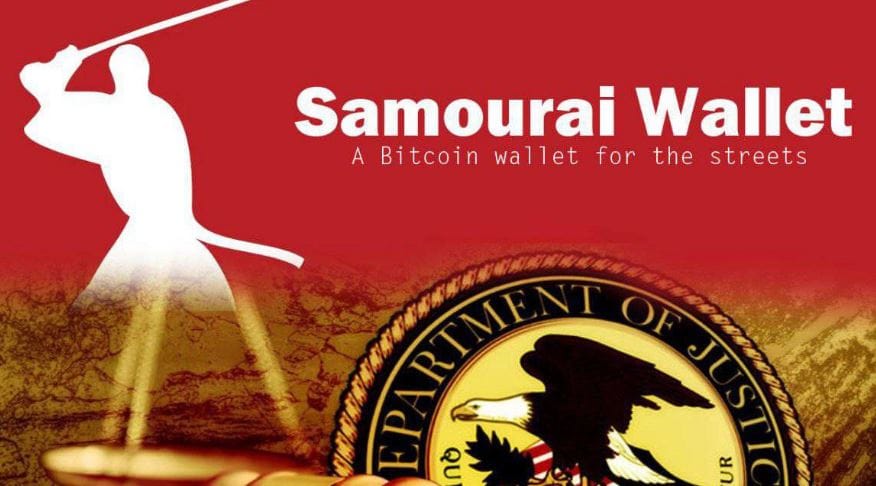Samourai Wallet Developers Mark One Year Since Arrest Amid Financial Privacy Debate

On April 24, 2025, a significant milestone was reached in the ongoing legal battle surrounding the developers of Samourai Wallet, a privacy-focused Bitcoin wallet. Exactly 365 days prior, on April 24, 2024, founders Keonne Rodriguez and William Lonergan Hill were arrested and charged by the U.S. Department of Justice with money laundering and operating an unlicensed money-transmitting business.
This date marks the one year anniversary since the arrest of the developers and how it highlights the right to privacy. The case has sparked widespread discussion about financial privacy, the role of non-custodial wallets, and the boundaries of regulatory oversight in the decentralized finance and crypto space.
The Samourai Wallet, known for its Whirlpool feature, offers a CoinJoin implementation that breaks transaction links to enhance user privacy. This tool, built on a modified version of the ZeroLink theory, allows users to obscure the history of their Bitcoin transactions, a process that advocates argue is essential for maintaining financial privacy in an increasingly surveilled digital landscape.
However, the Department of Justice alleges that the wallet facilitated over $100 million in criminal proceeds, claiming that its privacy features made it a haven for illicit activity. Critics of the charges, including those from the Mises Institute in a May 2024 article, counter that Samourai Wallet incentivizes users to hold funds for privacy purposes rather than enabling quick cash-outs typical of money laundering schemes. They argue that developing tools to protect user privacy should not be criminalized.
Stay In The Loop and Never Miss Important Crypto News
Sign up and be the first to know when we publishWhy Financial Privacy Matters in the Digital Age
The case against the Samourai Wallet developers brings into sharp focus the critical importance of financial privacy in the modern world. Bitcoin and other cryptocurrencies were originally designed to offer a decentralized alternative to traditional financial systems, where transactions could be conducted without the oversight of banks or governments.
This vision hinges on the ability of users to maintain control over their financial data, shielding it from prying eyes. Privacy tools like CoinJoin, as offered by Samourai Wallet, are not just technical features but vital mechanisms for protecting personal freedom. They allow individuals to transact without revealing sensitive details about their finances, associations, or lifestyles, which can be particularly crucial for those living under oppressive regimes or facing financial censorship.
The broader implications of this case extend beyond the cryptocurrency community. In an era where data breaches and surveillance are increasingly common, the ability to maintain financial privacy is a fundamental right that affects everyone. Public blockchains, while transparent, can expose a user’s entire transaction history if not properly managed, turning financial activity into an open book. This level of exposure can lead to risks ranging from targeted scams to government overreach. Which is one of the reasons why private blockchains such as Monero and Zano have also caught on.
The legal battle faced by Rodriguez and Hill highlights the need for continued innovation in privacy-preserving technologies, as well as a balanced approach to regulation that respects user autonomy while addressing legitimate concerns about illegal activity.

